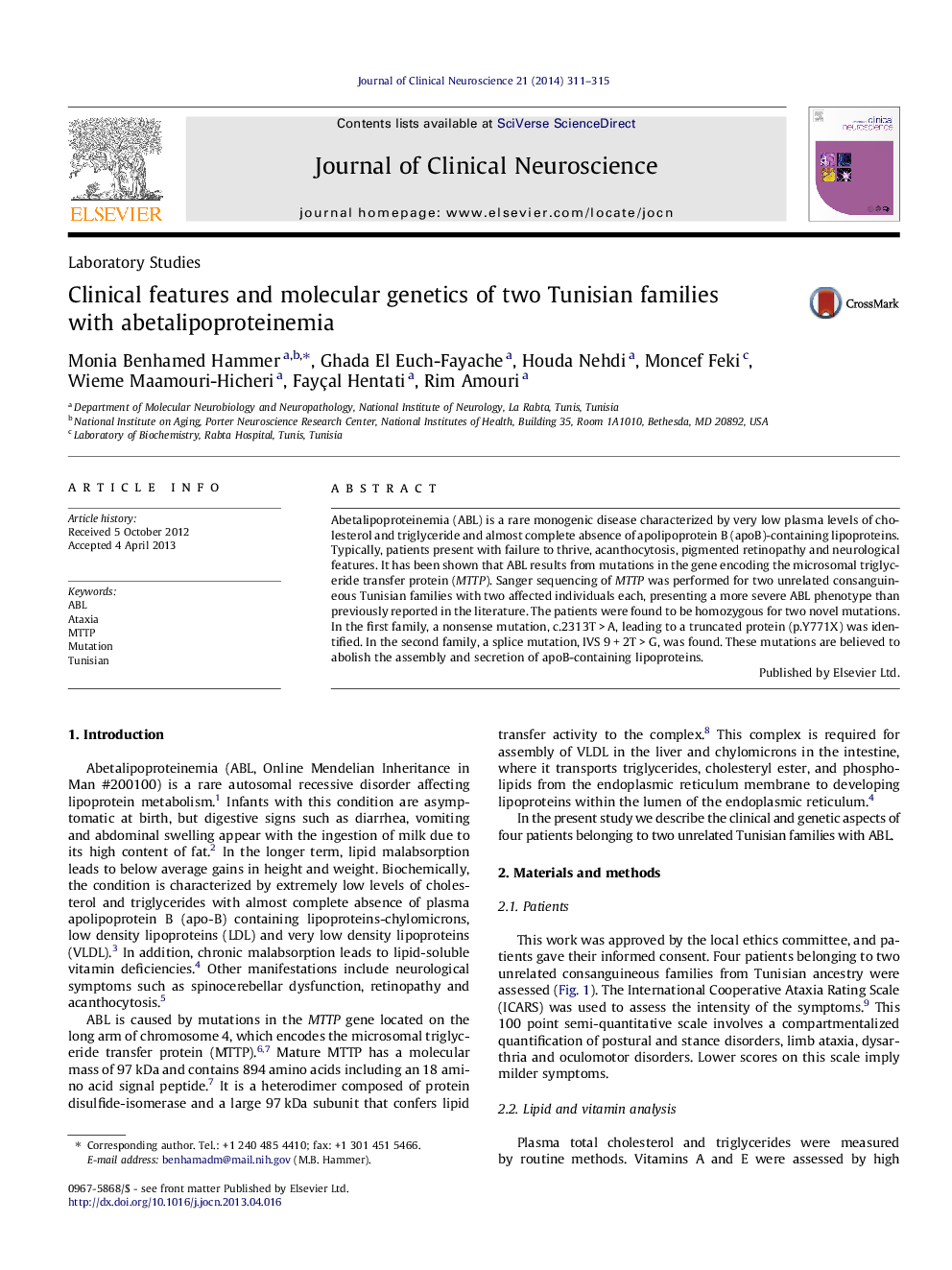| Article ID | Journal | Published Year | Pages | File Type |
|---|---|---|---|---|
| 3059243 | Journal of Clinical Neuroscience | 2014 | 5 Pages |
Abetalipoproteinemia (ABL) is a rare monogenic disease characterized by very low plasma levels of cholesterol and triglyceride and almost complete absence of apolipoprotein B (apoB)-containing lipoproteins. Typically, patients present with failure to thrive, acanthocytosis, pigmented retinopathy and neurological features. It has been shown that ABL results from mutations in the gene encoding the microsomal triglyceride transfer protein (MTTP). Sanger sequencing of MTTP was performed for two unrelated consanguineous Tunisian families with two affected individuals each, presenting a more severe ABL phenotype than previously reported in the literature. The patients were found to be homozygous for two novel mutations. In the first family, a nonsense mutation, c.2313T > A, leading to a truncated protein (p.Y771X) was identified. In the second family, a splice mutation, IVS 9 + 2T > G, was found. These mutations are believed to abolish the assembly and secretion of apoB-containing lipoproteins.
